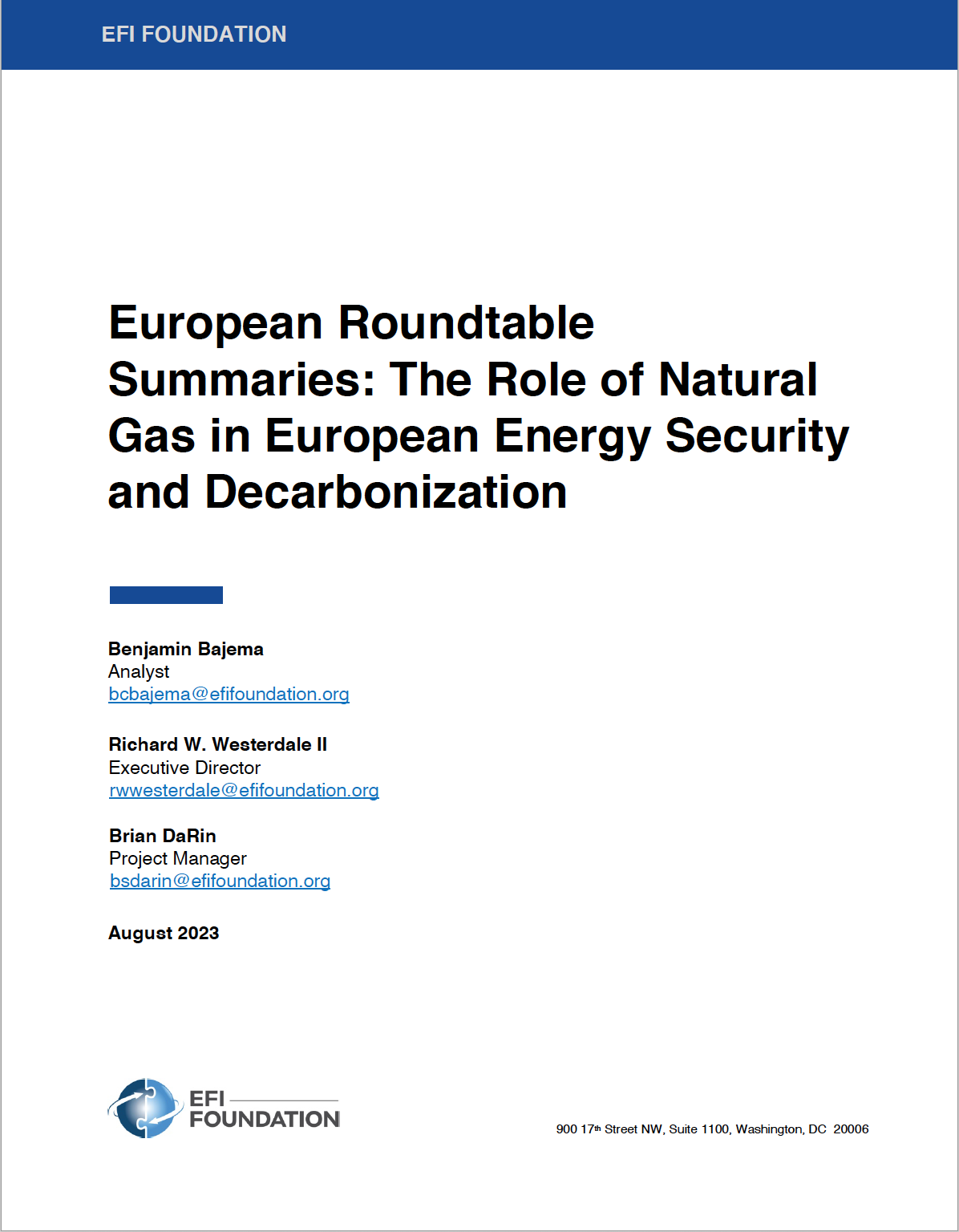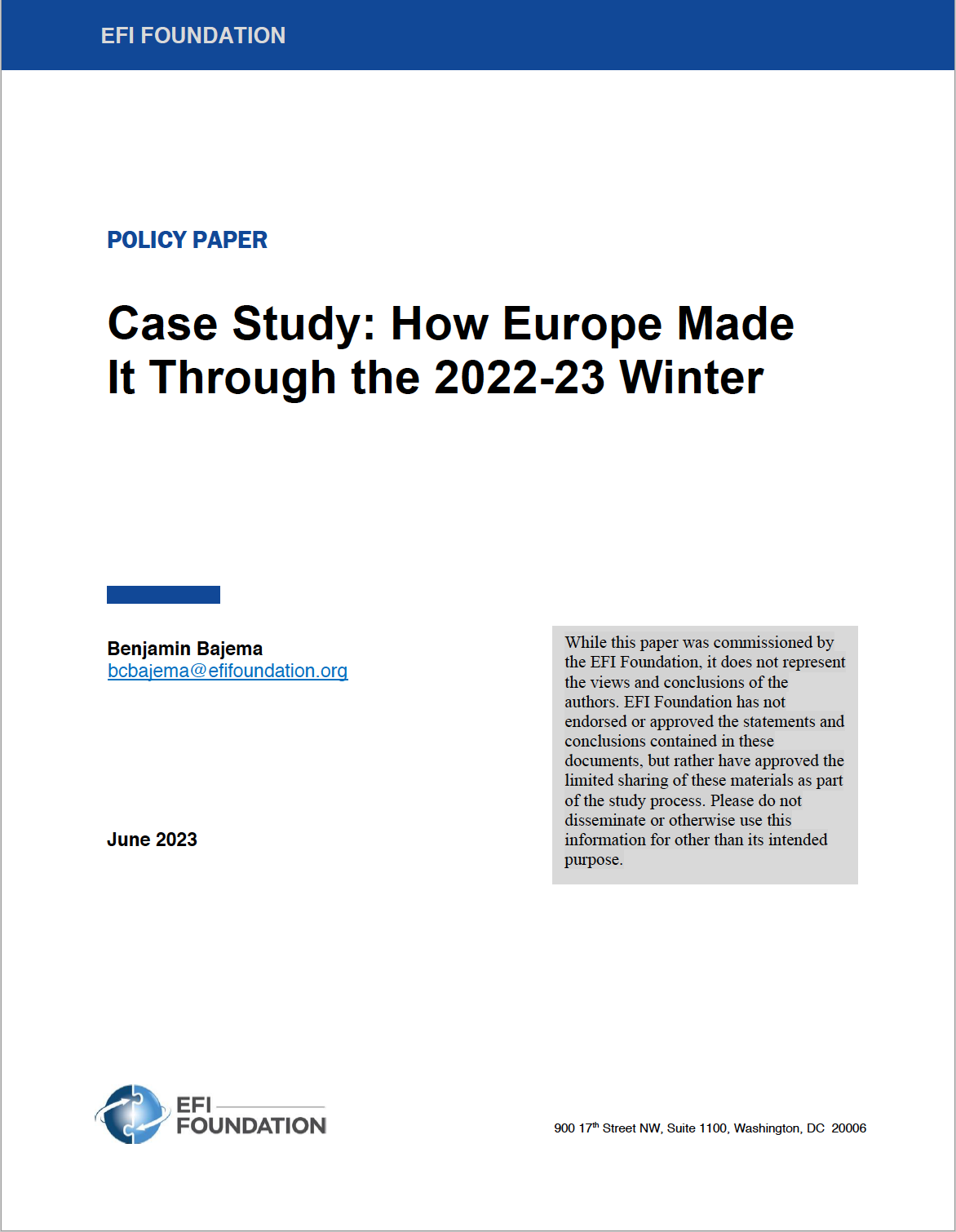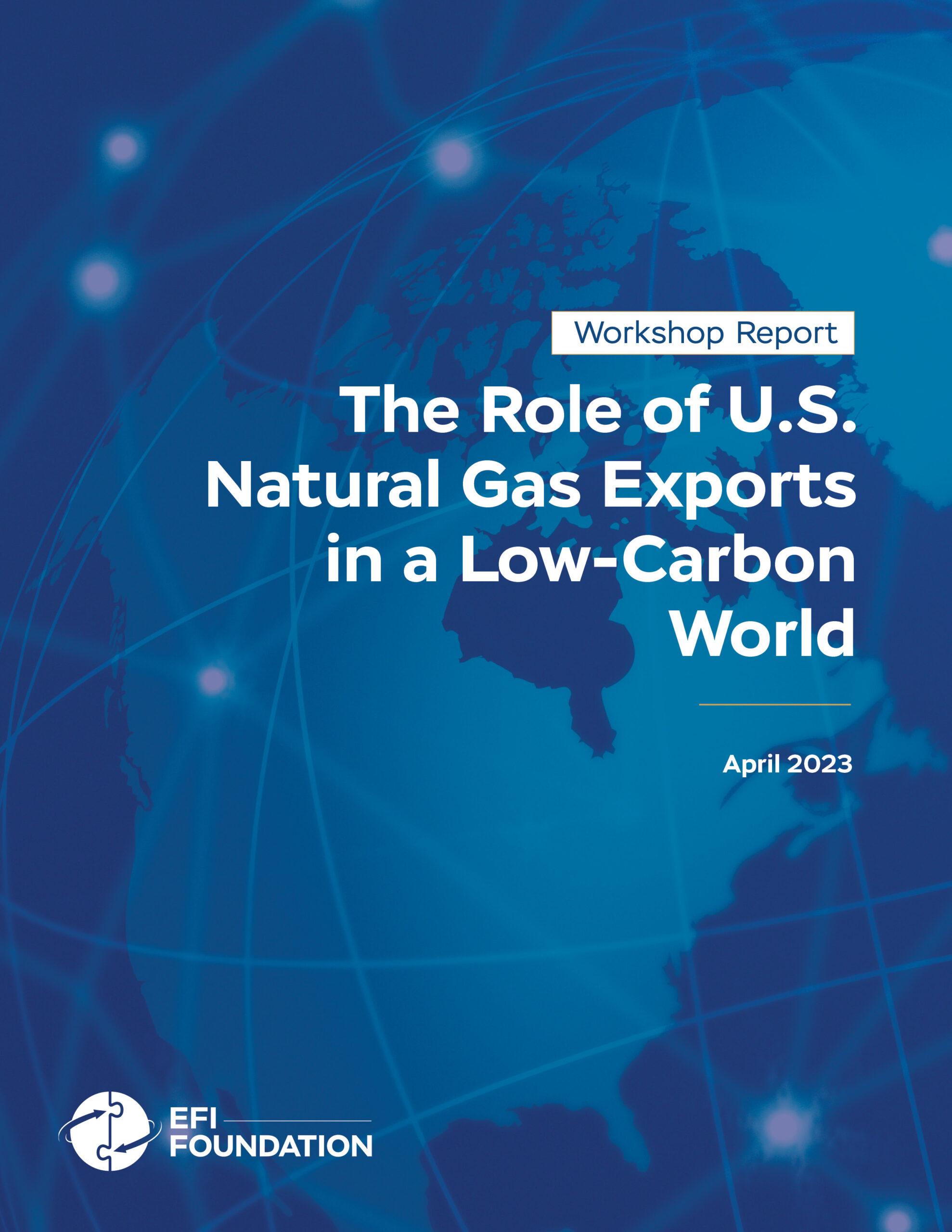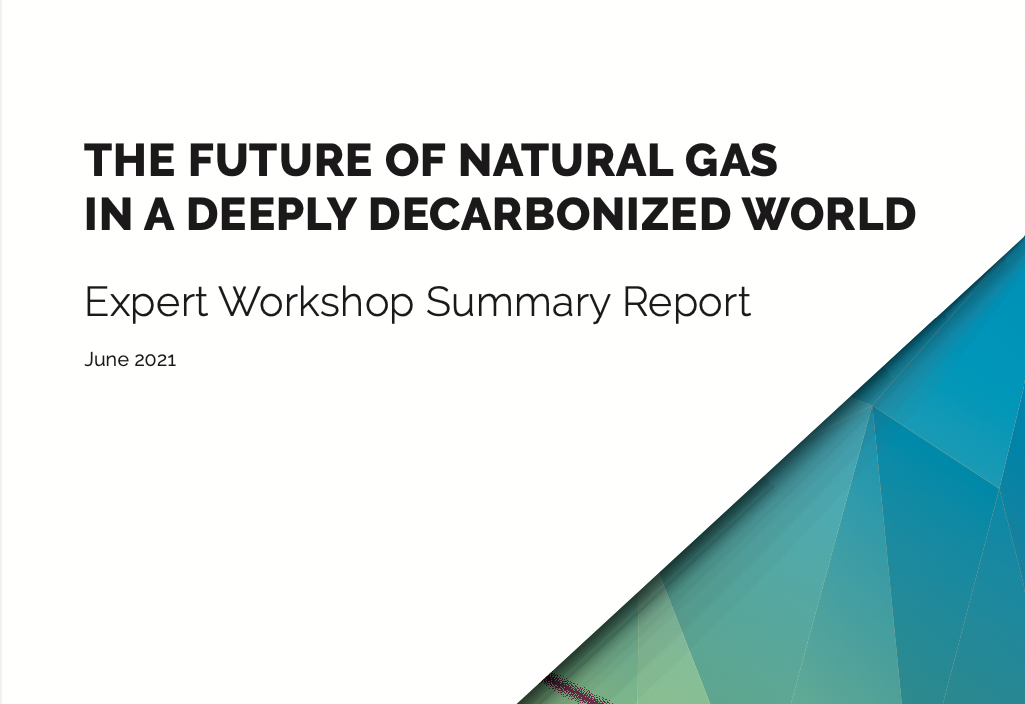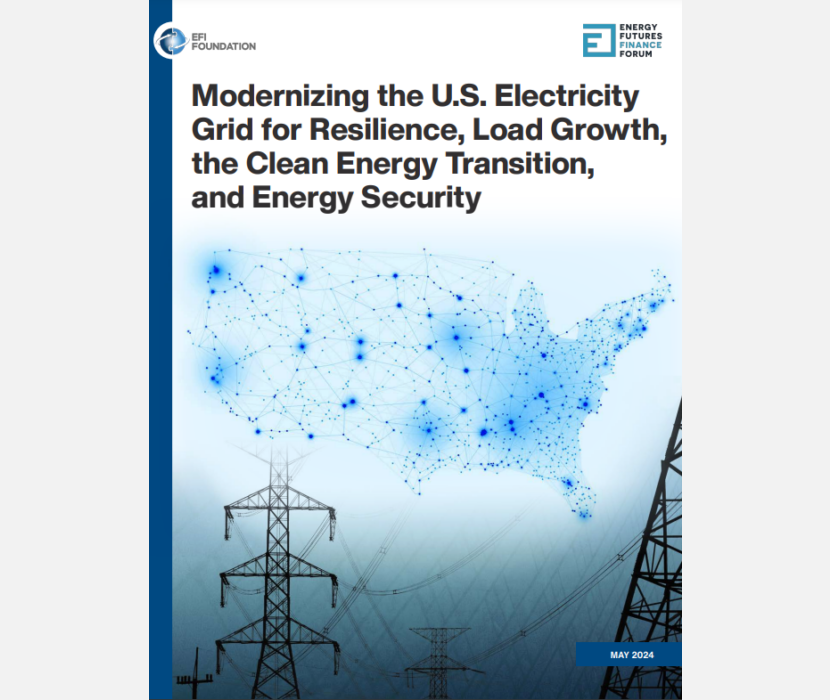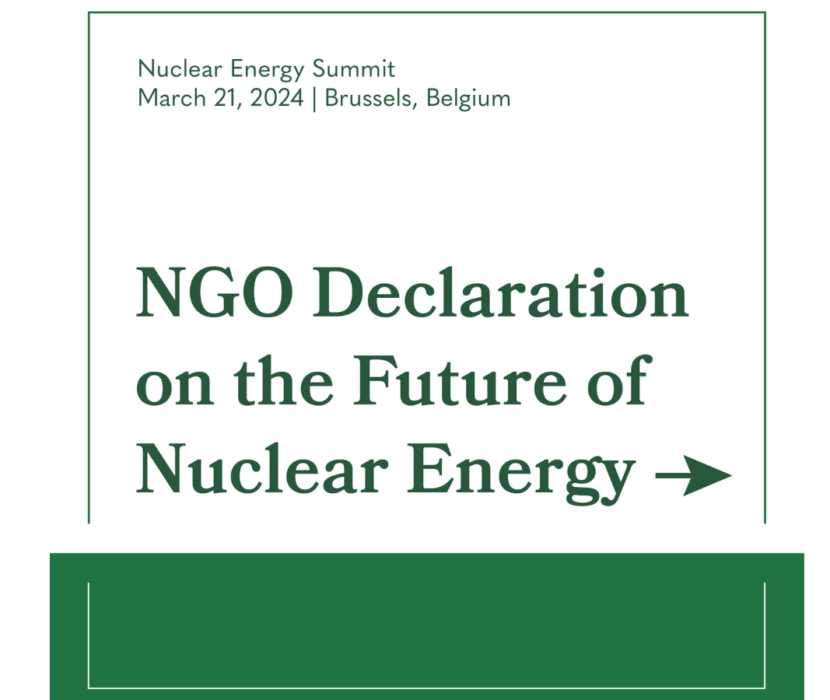European Roundtable Summaries: The Role of Natural Gas in European Energy Security and Decarbonization (August 2023) summarizes two EFI Foundation discussions held to elicit European perspectives on energy security issues and the role of natural gas during the energy transition. As part of the EFI Foundation study, The Future of Natural Gas in a Deeply Decarbonized World: Phase II, the roundtables were held in Sofia, Bulgaria, on June 14, 2023 (with co-host Center for the Study of Democracy), and Brussels, Belgium on June 16, 2023 (in partnership with the German Marshall Fund and the Partnership to Address Global Emissions). The roundtables brought together regional stakeholders, including representatives from non-government organizations, industry, and European Union member governments.
Natural gas is an important part of the European energy systems. Recent global events including the COVID-19 pandemic and Russia’s war in Ukraine have contributed to global energy security issues. The war and subsequent European Union (EU) sanctions have caused a dramatic decline in Europe’s supply of Russian gas. Fortunately, European natural gas demand was reduced during the 2022-2023 winter due to mild temperatures. However, Europe needs solutions to the current energy security issues while trying to meet ambitious goals of decarbonization.
The roundtables brought varying perspectives. The Eastern European representatives said natural gas is a critical fuel source for the energy transition, and they are most concerned about security and affordability. Western European representatives said they want to transition from fossil fuel use as quickly as possible and use the recent energy crisis to accelerate net-zero technologies.
The report details six takeaways from the roundtables:
- Views differed greatly between Eastern and Western Europe on the role of natural gas in Europe’s energy transition and energy security.
- Western European countries plan to use low- and zero-carbon hydrogen to meet industrial demand.
- Western European economies have concerns that liquefied natural gas is currently too expensive and emissions-intensive to be considered for the EU’s long-term decarbonization strategies.
- Recovery of natural gas demand in Asia will make it even more challenging for Europe to secure an ample supply of natural gas for industrial and winter heating needs.
- Policies such as the Carbon Border Adjustment Mechanism and REPowerEU could weaken European industrial competitiveness and increase economic risks.
- The time it will take to deploy and scale up alternatives must be considered when setting realistic decarbonization targets.
The EFI Foundation is moving forward with avenues of inquiry for examining the role of natural gas in a decarbonizing world with the next roundtable to be held in Asia. The goal is to use these insights to inform research and possibly identify a set of recommendations for policymakers to consider when making decisions about the role of natural gas in the energy transition.
Supplemental Material
Related Content
(Share this post with others.)


